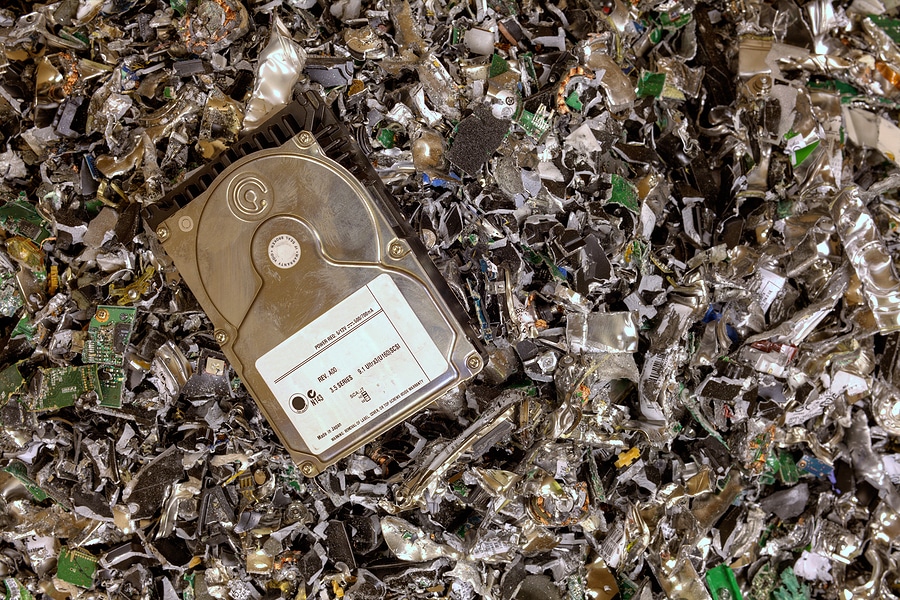What Types of IT Equipment Should Have a Disposal Policy?

Disposing of old IT equipment can create security vulnerabilities. Data that isn’t properly wiped or destroyed can be used by malicious actors.
Many organizations have their old hardware wiped or destroyed to render the information no longer readable. This approach means knowing which devices should have a disposal policy for end of life (EOL).
A good disposal policy will give your organization better data protection and greater efficiency when upgrading important infrastructure. Computing devices, storage mediums, and old paperwork and documents should be destroyed after use to maintain security and compliance.
Computing Devices
Decision-makers should be aware of the dangers posed by EOL computers and other user equipment. Businesses that use computing devices for information storage, communication, or any other type of daily activity should be aware that important data can remain throughout the device’s lifecycle.
Client devices such as computers, smartphones, and tablets present security risks to companies that don’t dispose of them correctly. Digital cameras, copiers, printers, and even fax machines can retain insecurely stored data. Your organization should have a disposal policy for these old user devices when they reach EOL.
Storage Media
Storage devices present a potential weakness for an organization’s data security. Old equipment used for storing vital information is especially susceptible to data leaks. Even if the information has been deleted from old drives, it can still be accessed later.
HDDs and SSDs that were used for internal tasks should be considered vulnerable to information leaks. Other storage mediums such as flash drives, tapes, and CDs should also be either wiped with vetted processes or destroyed. A good disposal policy for storage devices is essential to maintain data security.
Papers and Documents
Old paperwork and documents that were used for important internal communications or development present a potential threat to organizations that don’t have strong disposal policies in place. Even though the business world has gone largely digital, illicit actors will still take advantage of papers and documents that haven’t been properly dealt with.
If your business uses physical paperwork and documents, make sure to have a disposal policy in place. Shred old documents and make sure important records and other information aren’t exposed to the public. A good disposal policy for papers and documents will keep your organization safe from data leaks.
SEAM Disposes of Unwanted Equipment
If you or your business need to dispose of old or unused IT equipment, Secure Enterprise Asset Management (SEAM) is here to help.
Our team provides computer and hard drive recycling, data destruction, and mobile document shredding in Sioux Falls, South Dakota. The processes we use provide better security, saving you money and giving you peace of mind.
We’ll make sure you maintain compliance with data privacy laws. Our HDD and SSD destruction conforms to NIST standards, and our document shredding provides a 5/8″ strip cut.
SEAM is a leader in the destruction, remarketing, and resale of old IT equipment. We’re happy to serve businesses in South Dakota and North Dakota with certified value recovery. We’ll get you maximum ROI for your old devices.
Don’t let fear of data breaches hold you back from a better IT infrastructure. Contact SEAM to dispose of your old equipment!
SEAM provides IT recycling and data destruction services including onsite shredding and hard drive wiping to South Dakota, North Dakota, Minnesota, Iowa, and Nebraska.
Schedule a pickup or contact us for more information.





